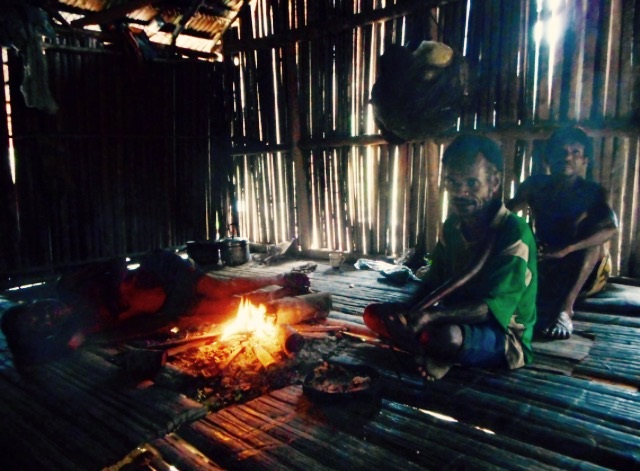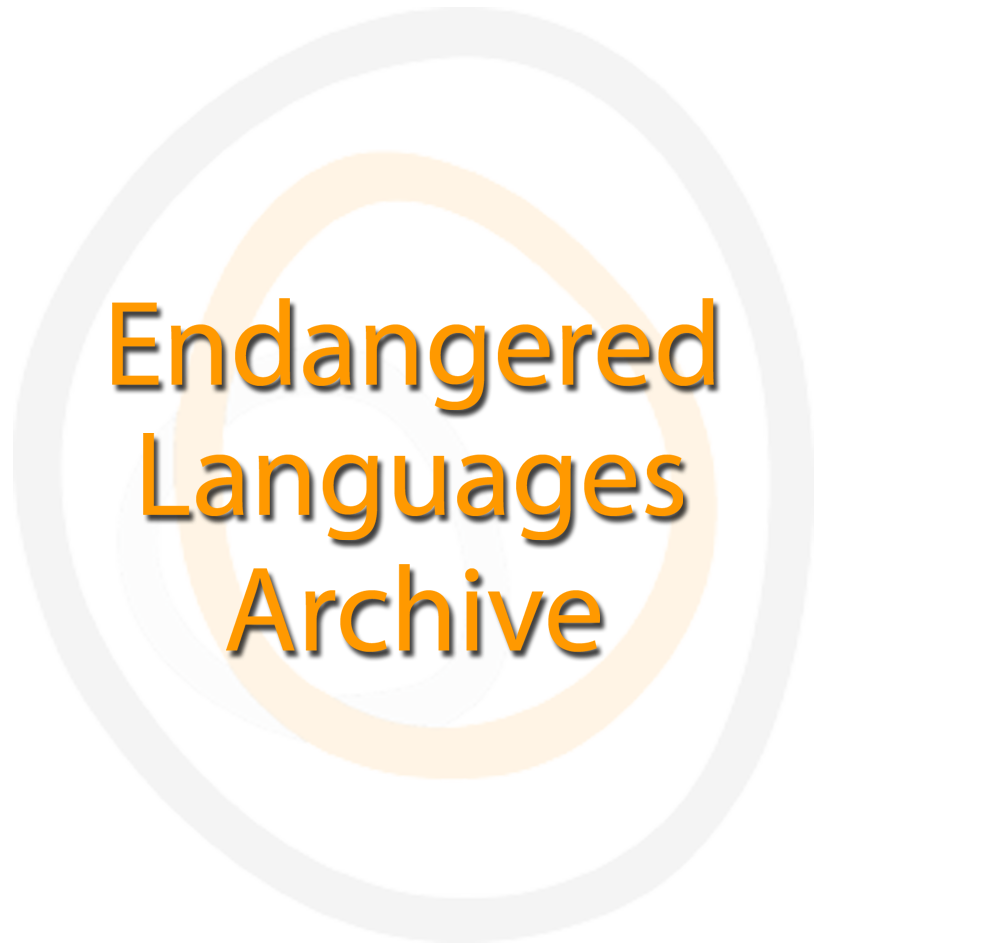Documentation and analysis of Yaw linguistic practices

Landing page image for the collection “Documentation and analysis of Yaw linguistic practices”. Click on image to access collection.
| Language | Yaw |
| Depositor | Joseph Brooks |
| Affiliation | University of Virginia |
| Location | Papua New Guinea |
| Collection ID | 0595 |
| Grant ID | IPF0279 |
| Funding Body | ELDP |
| Collection Status | Collection online |
| Landing Page Handle | http://hdl.handle.net/2196/5b7c3876-d792-46a5-8096-c9eebe777327 |
Podcast
Summary of the collection
This collection represents the first documentary effort for the Yaw language. It includes documentary materials about the Iteri people in East Sepik Province, PNG. This collection focuses on word lists, folk tales, and casual interaction as part of the first documentation of this language which is spoken in a fairly large area straddling the East Sepik and West Sepik provincial borders. The few recordings from a pilot trip in 2019 are audio-only, the rest from the ELDP-funded trip in 2020 are audiovisual.
Group represented
The Iteris, whose village (of the same name, i.e. Iteri) and bush houses hug the Arai River. The Iteris have no autonymic form for their language, referring to it only as ‘speech/talk’ (yaw) or ‘our speech’ when distinguishing it with other languages. For the purposes of this project and ease of reference, the language is therefore referred to as ‘Yaw’. The language is also spoken in 4 other villages: Akromey, Mosketo, Iwau, and Faru. With Faru as the only clear outlier, the language appears to be fairly uniform in terms of dialects.
Speakers of the neighboring Nakwi [nax] language are also represented in a couple of the recordings, and there is also a short exchange in Sorimi [bpw]. This collection also includes some documentation of code-switching between Yaw and Tok Pisin, especially in oratory.
Language information
Special characteristics
The annotated parts of this collection provide insight into certain cultural practices and local cultural frameworks of meaning specific to the Iteris’ way of life.
One of the major examples of this relates to the particularities of the dispersed ancestral homesteading model of settlement versus the (post-contact) centralized village settlement pattern are rather fascinating in Iteri. This is because of the major problem of food (that is, protein) scarcity in Iteri and how that interrelates with a range of social complexities for the communal as opposed to isolated homesteading life. Many of the conversations and recordings shed insight on these matters and from diverse angles. For instance the documentation includes the building of a fish dam to catch the (tiny!) fish in the Arai river, and it also includes things like parents’ socialization of children to teach them how to balance the value of private food hoarding versus the social obligation of food sharing in the presence of others.
Collection contents
This collection includes about 22 hours of audiovisual recordings in Yaw, 1.5hrs of which are currently transcribed and translated into Tok Pisin in ELAN. The genres and discourse types included are as follows:
The collection includes about 11 hours of documentation of home life in Iteri, of primarily 4 different families sitting around the hearth and chatting about village matters and issues of domestic life. Approximately a half hour of one of these interactions is currently transcribed.
As this is the first documentary effort for the Yaw language, the recording of word lists was prioritized and includes 3.5 hours. The word lists are geared strategically toward those area of grammar I found most challenging in my initial efforts to understand the workings of the language, namely the distinctions between the high/mid front vowels and also the high/mid back vowels, and then also verb tense and the verb morphology which is very complex.
There are just over 2.5 hours of documentation of community events and activities, including communal work, a village party, and a traditional earth-oven (mumu). Also recorded is a very special cultural practice that the Iteris only do on rare occasion, which is the construction of a dam from stones and leaves as a means of catching fish.
Because the Christian faith is central to the local culture, the documentation includes 2.5 hours of 3 different church services led by the local church leaders. These recordings are quite special both culturally and linguistically: culturally because of what they tell us about how the Iteris practice and conceptualize their faith, linguistically because of the pastors’ use of code-switching between Yaw and Tok Pisin as a rhetorical device in oratory/preaching. 5 minutes of an interesting part of one of Robert Sepi’s code-switched sermons are transcribed and translated.
Other forms of monologic discourse are also included. Of 48 minutes of recordings of traditional folk tales, 30 minutes are transcribed and translated. 28 minutes of local lore and history as well as autobiography were documented, all of which are transcribed and translated. 47 minutes of a bush walk were also recorded. A few other relevant types of documentation are included such as permissions, photographs, and field notes.
The collection also contains a small amount of speech in Tok Pisin [tpi] and a short exchange in the neighboring Sorimi language [bpw] over the local New Tribes Mission radio.
Collection history
This collection includes documentation from two trips to Iteri. The first trip was a short pilot trip for about 2 weeks in early 2019, which was generously funded by a grant from the Mithun-Chafe Fund for Research on Understudied Languages. The bulk of the documentation is from the ELDP-funded trip in early 2020 as part of an IPF grant and post-doctoral position at the University of Virginia. Data processing began upon return to North America during the pandemic and is on-going.
Other Information
Annotation files are still in the process of being worked over, and they will be updated and added in due course. English translations of the Tok Pisin translations are also forthcoming.
Also, while the global pandemic makes it uncertain when a return trip will be possible, the collection here is part of a long-term commitment to the Iteris and the documentation and description of their language.
Acknowledgement and citation
Anyone wishing to use or cite the contents of this collection for research purposes or otherwise is requested to ask the principle investigator prior to doing so. I am best reached at brooks.josephd@gmail.com.
Uses of the collection should acknowledge Joseph Brooks as the principle investigator and researcher and should acknowledge ELDP as the funder.
To refer to any data from the collection, please cite as follows:
Brooks, Joseph. 2021. Documentation and analysis of Yaw linguistic practices. Endangered Languages Archive. Handle: http://hdl.handle.net/2196/00-0000-0000-0014-00C1-A. Accessed on [insert date here].


